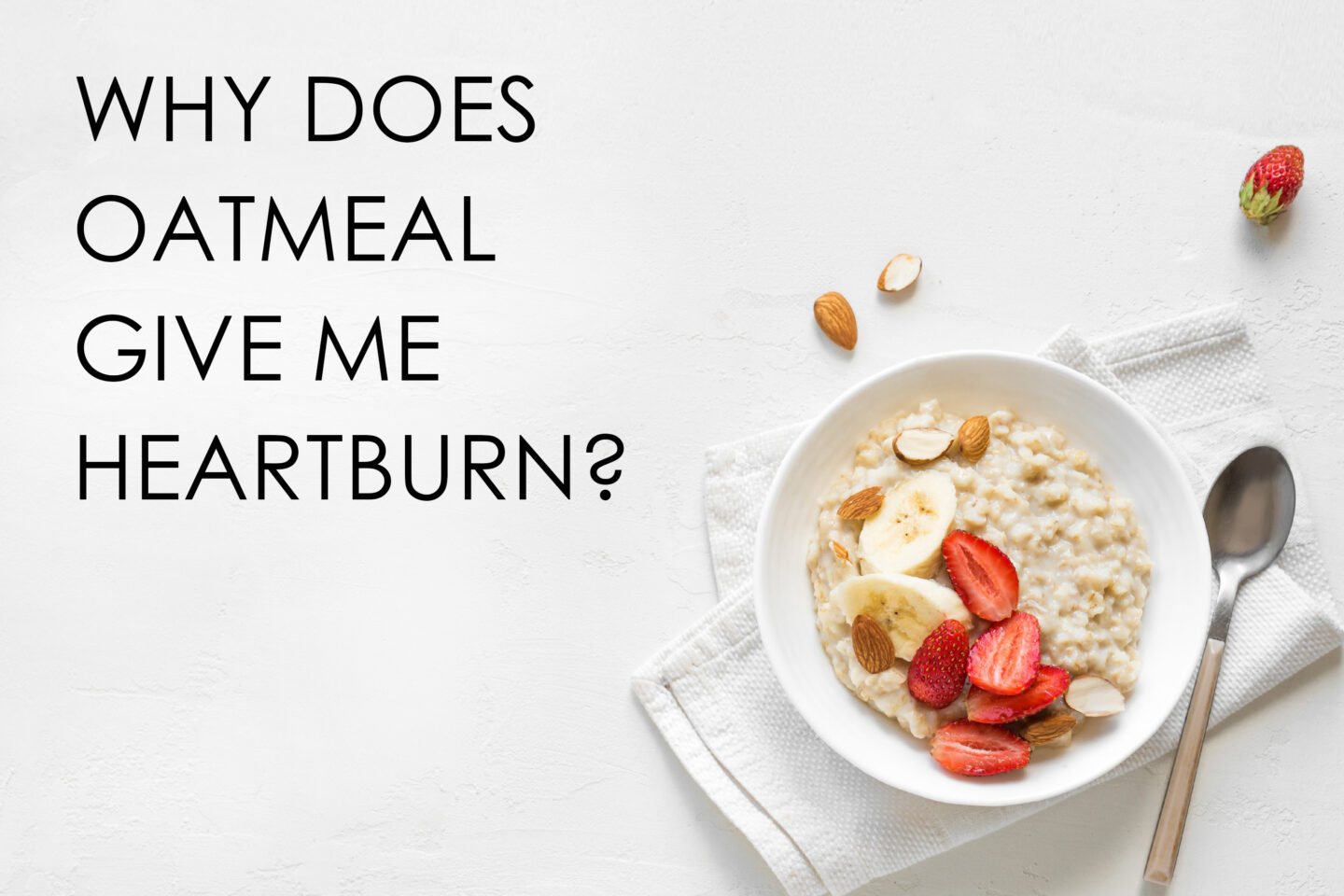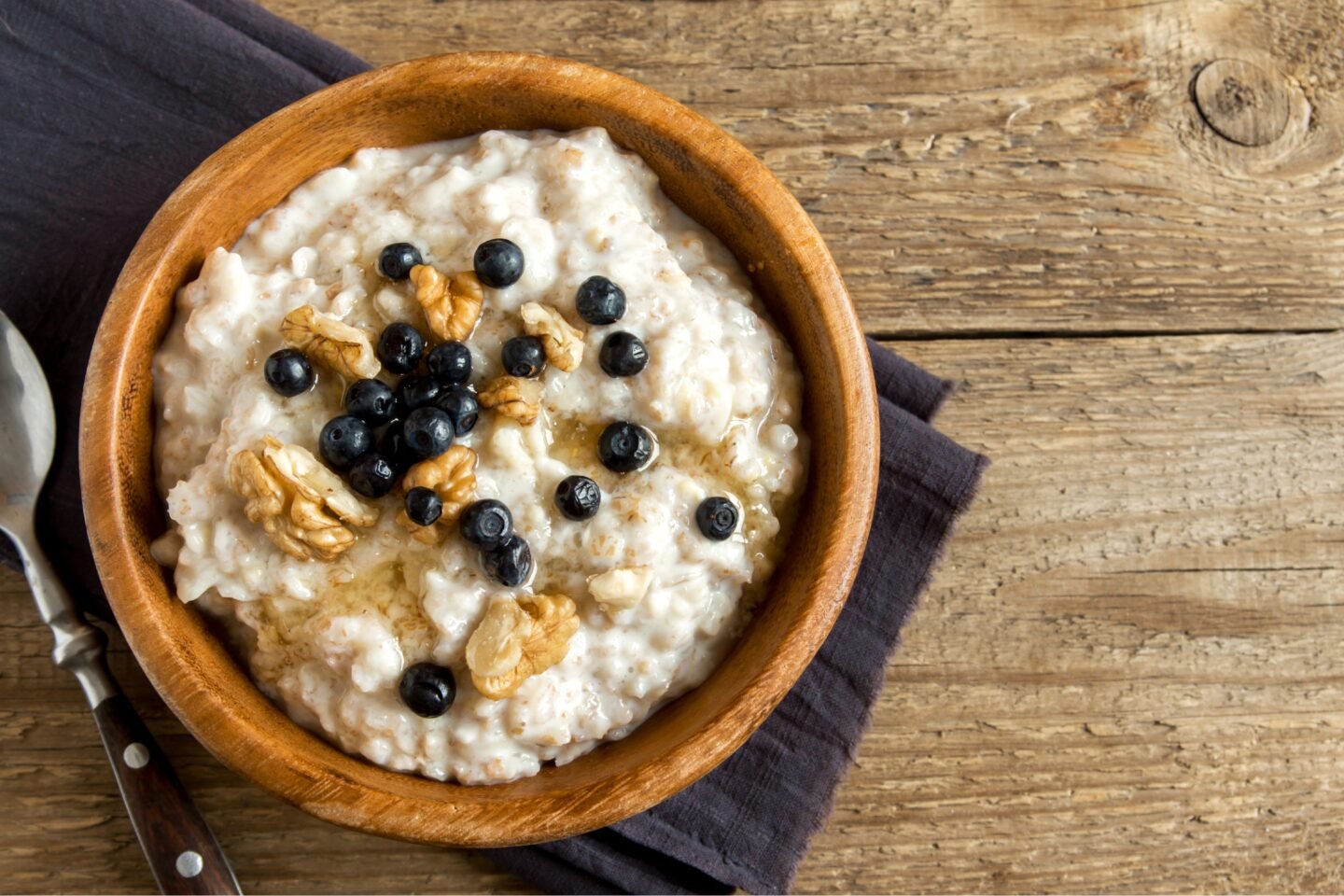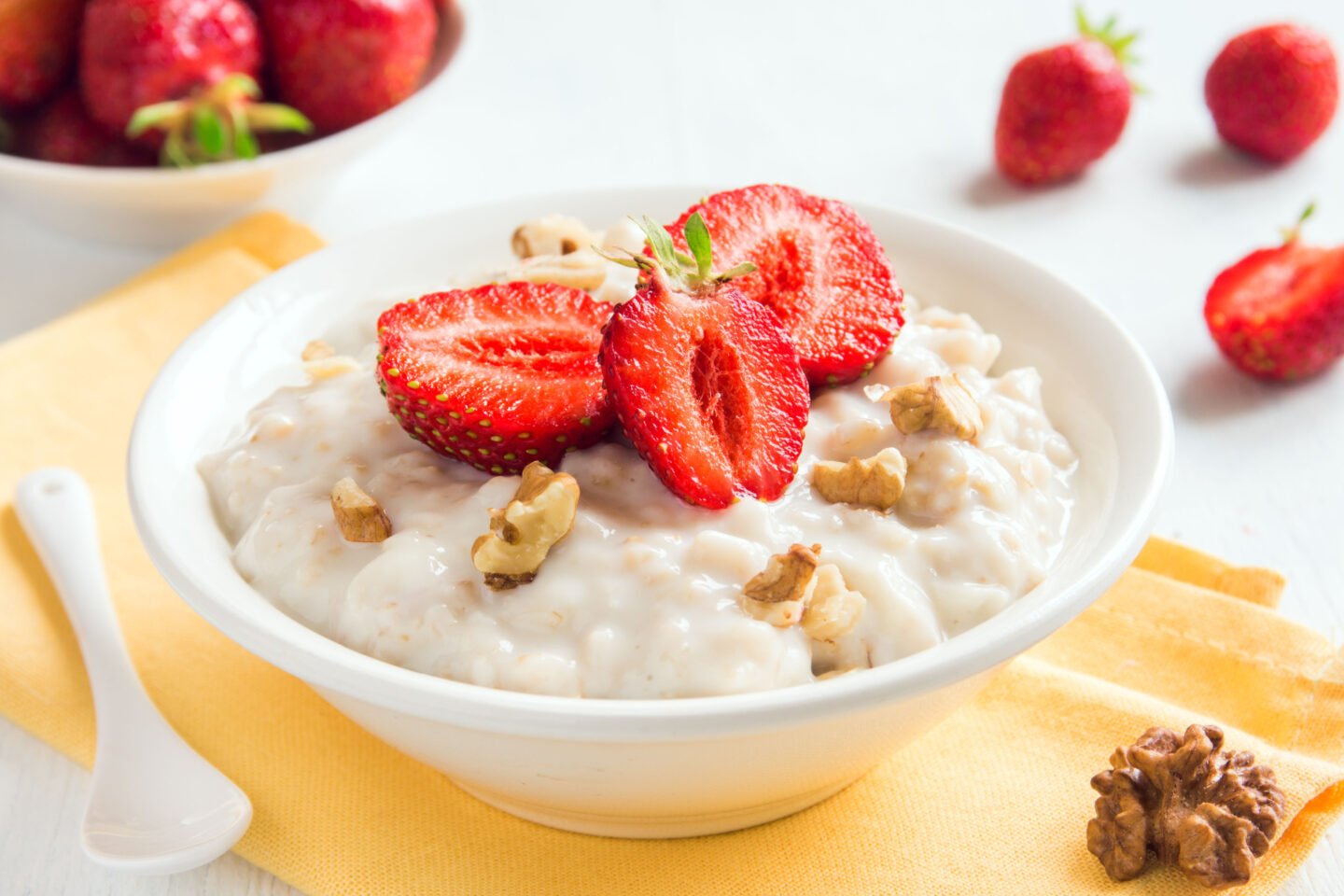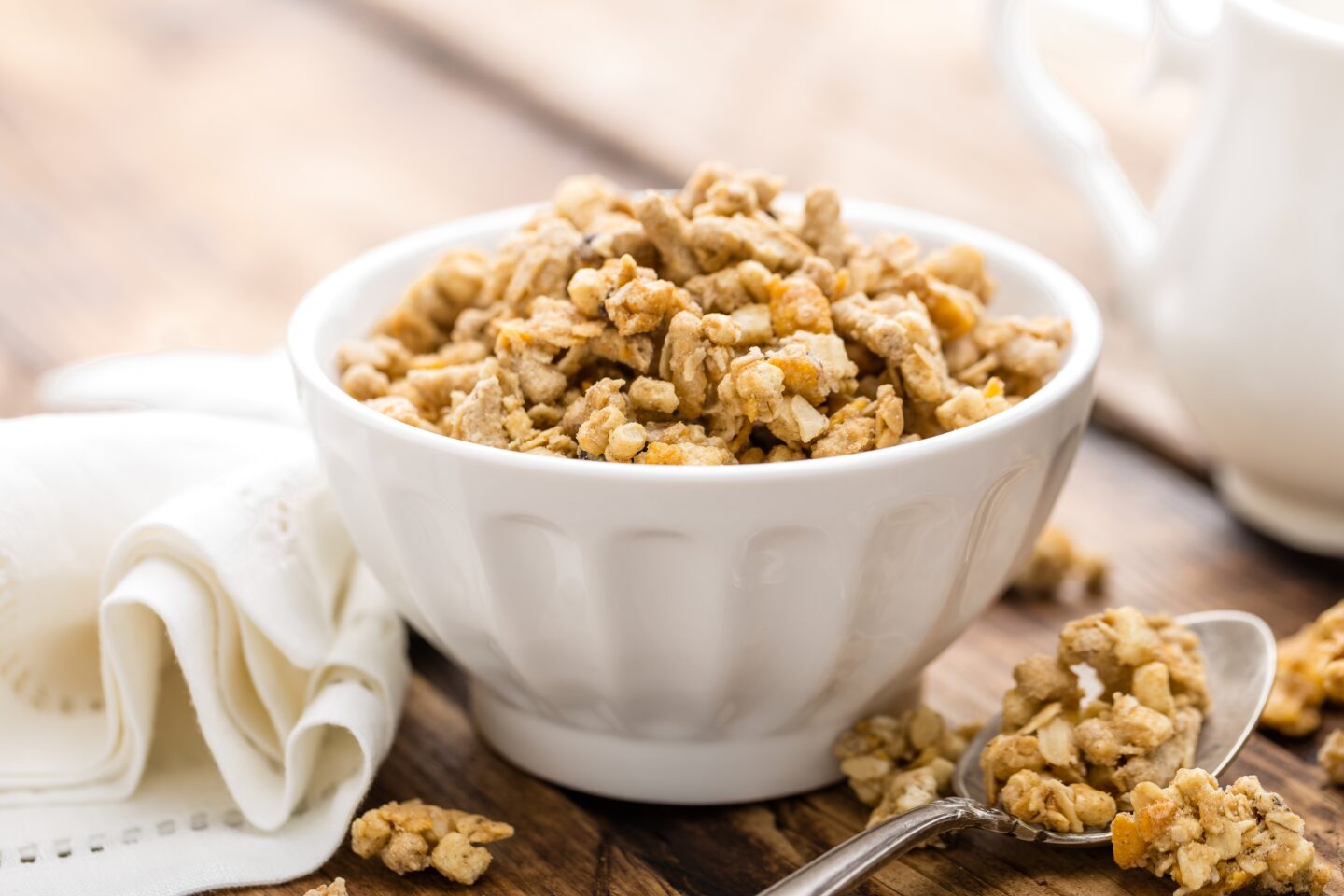Often considered a superfood, wholegrain oats are rich in vitamins, minerals, and fiber. Likewise, oatmeal is a popular, nutritious breakfast that is delicious with fresh fruits, milk, or yogurt. It can also be baked into cakes, cookies, and bread, adding flavor, texture, and nutrients.

Although it's a safe dietary addition for most people with acid reflux, oatmeal may cause heartburn in some. But why is this so?
Table of Contents
Why Does Oatmeal Cause Heartburn?
Although oatmeal won't trigger heartburn in most people, it's acid-forming, so it may, especially in those with sensitive stomachs.
What Is the pH of Oatmeal?
Oatmeal is slightly acidic, with a pH of between 6.2 and 6.6. A pH of 7 is neutral; anything below is acidic, and above is alkaline.
Is Oatmeal Acidic or Alkaline?
Oatmeal is slightly acidic but also acid-forming, which may trigger acid reflux symptoms in some.
Acid-forming foods add to one's acid load when digested, making acid reflux more likely.
Conversely, alkaline and alkaline-forming foods help neutralize gastric acids, soothing the digestive tract.
Is Oatmeal Bad for Acid Reflux?

As it is acid-forming, oatmeal may trigger heartburn in some people. However, everyone's symptom triggers are different, and some may be able to tolerate them better than others.
Moreover, most people do not experience any acid reflux symptoms after eating oatmeal. Since oatmeal is high in fiber, they tend to absorb excess acid in one's stomach, making them safe for most.
If you find oatmeal gives you heartburn, you could try eating less of it or adding some alkalizing fruits.
How Do You Make Oatmeal Less Acidic?
Many nutritionists recommend a diet made up of 80% alkaline foods and 20% mildly acidic. As oatmeal is slightly acidic, pair it with alkaline fruits or nuts.
Although many fruits and dried fruits are acidic, alkalizing varieties include apricots, apples, kiwis, persimmons, nectarines, grapefruits, and watermelons.
Nuts are also a nutritious, alkaline addition, but they may cause heartburn in some.
Avoid adding artificial sweeteners or fats, as these will likely increase acidity.
Why Do Oats Bloat Me?

Oats cause bloating in some people, and there are several possible reasons.
Although oats are gluten-free, oatmeal is often processed around wheat, barley, or rye and may be contaminated with gluten. If you're gluten intolerant, this could cause bloating.
Oatmeal is also high in soluble fiber, which may cause bloating, gas, and stomach cramps.
Fiber helps regulate cholesterol and soaks up stomach acid, but introducing too much to your diet too quickly could result in bloating.
Are Oats Inflammatory?
Oats are highly nutritious and relatively non-inflammatory.
Studies show a diet low in inflammatory foods, such as refined carbohydrates, is beneficial.
Although oats are a carbohydrate, they are usually eaten as a whole grain and are non-inflammatory.
However, if you have irritable bowel syndrome or celiac disease, then oats may be inflammatory.
Are Overnight Oats Alkaline?
Overnight oats are usually soaked in milk or yogurt with fruits, nuts, seeds, cacao, or chocolate.
They're high in carbohydrates and are slightly acidic, not alkaline.
Why Does Granola Give Me Heartburn?

If you can tolerate oatmeal but granola gives you heartburn, it's likely another ingredient causing problems, not the oats.
It's often high in sugars and dried fruits, both of which may trigger or worsen heartburn.
If you make your own granola, you can choose more alkalizing ingredients and avoid adding too much sugar, making it less likely to trigger heartburn.
Don't know what to drink? Check out these articles: 20 Most and Least Acidic Juices and 20+ Alcoholic Drinks Ranked by Acidity Level
